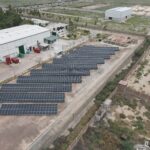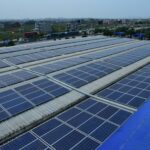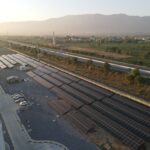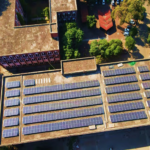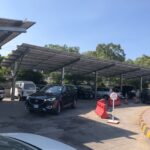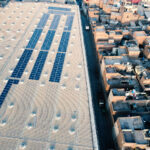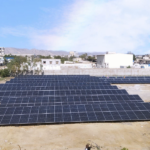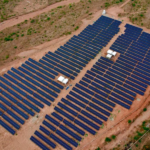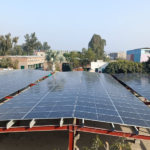Frequent power disruptions would have halted operations just a year ago. Currently, a collection of solar panels installed on the roof provides all the energy. At Shams Power, we believe that distributed solar energy will play an important role in the future by providing more affordable and easily available electricity.
Fair and reasonably priced power access
Solar energy is evolving from a commodity to a technology with two main advantages. First, the cost of solar technology keeps decreasing as it advances. The cost of solar energy has dropped by 33.4% each time production has doubled between 2010 and 2023.
Secondly, international politics and the global market control the price of fossil fuels. In contrast, using solar panels goes a long way in allowing businesses to produce their power, therefore increasing control. People are able to produce their electricity requirements, unlike fossil fuel systems, which require expensive and unpredictable transmission and imports.
This independence will increase, and energy generation may become more decentralized as batteries become more affordable. This year, Pakistan is among the most glaring examples of emerging economies spearheading this shift.
Growing demand for solar energy
Pakistan is now the third-largest importer of these panels after purchasing an astounding 13 gigawatts (GW) of Chinese solar panels in the first half of this year. The UK is only expected to build 1.5 to 2 GW of solar capacity this year, and the US had build 32GW in 2023. In contrast, 46 GW, or 30% of Pakistan’s total power capacity, was imported in just six months in 2023. Locally, the impact is more significant, and this could place Pakistan as the sixth-largest solar panel installer in 2024. 1
Pakistan’s solar revolution’s driving forces
The reliable grids in Pakistan and the inexpensive and abundant supply of solar energy are the two primary drivers propelling the fast adoption of solar power. Businesses in Pakistan suffer from frequent power outages or load shedding, and electricity costs have increased by 155% since 2021.
Businesses in Islamabad pay between PKR 29.11 ($0.10) and PKR 48.00 ($0.17) per kWh for grid electricity, but solar panels cost about PKR 22-30 ($0.08-$0.11) per kWh.1 Local businesses are adopting solar power due to its affordability and dependability, and more decentralized energy systems are anticipated to develop as battery storage becomes more affordable. This helps businesses because almost three-quarters of Pakistani companies face power disruptions.
Implications for Pakistan’s emerging economy
Since coal, oil, and gas generation have decreased during the past two years, Pakistan’s power sector’s carbon dioxide emissions have also decreased. This method can spread to developing nations with strong solar potential. Solar energy is already reasonably priced in Pakistan compared to grid energy, and it will only get more affordable as technology develops. The firms with fewer limitations on their energy use are more likely to grow faster, invest more and recruit more employees. Additionally, businesses can expand thanks to solar’s ability to lessen the need for national infrastructure.
Pakistan’s solar revolution demonstrates how solar energy can enable people to take charge of their energy goals and assist Pakistan to get past infrastructure constraints. It closes the performance gap between advanced and developing economies in the energy transition while ensuring equity.



